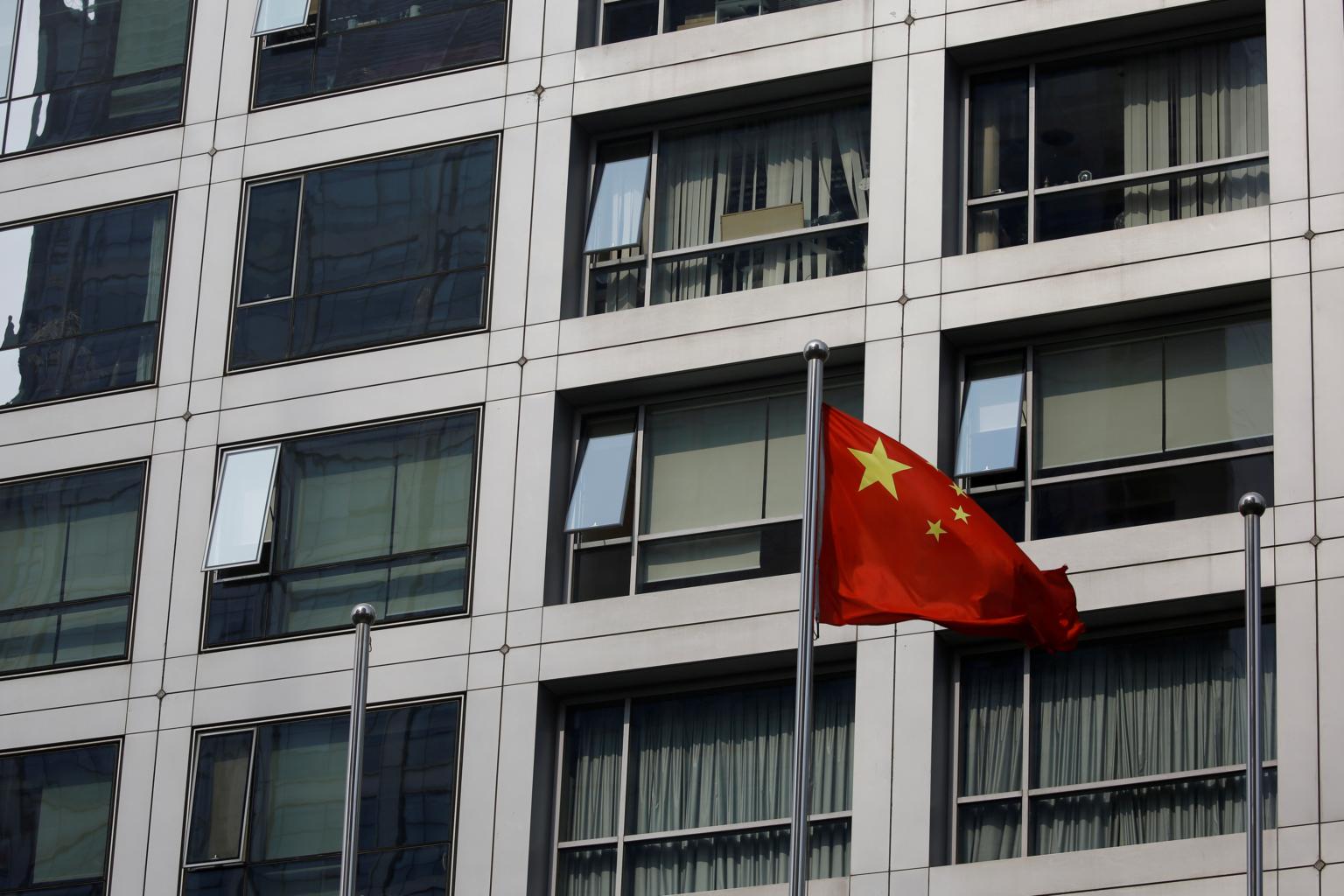US says it will be ‘clear-eyed’ with China ahead of high-level talks
Sign up now: Get ST's newsletters delivered to your inbox

Washington believed it was going into talks with top Chinese officials with an increasingly strong hand.
PHOTO: REUTERS
Follow topic:
WASHINGTON - The high-level meeting between top envoys of the United States and China in Alaska this week is likely shaping up to be a frosty one, with Washington stressing again on Tuesday (March 16) that it will be a one-off and not the beginning of a dialogue process.
The comments by an American senior administration to reporters suggest a gap between Washington and Beijing's expectations for the highly-anticipated meeting on Thursday between Secretary of State Antony Blinken and National Security Advisor Jake Sullivan, and top Chinese diplomat Yang Jiechi and Foreign Minister Wang Yi.
It will be the Biden administration's first in-person meeting with senior officials from China, which Washington regards as its chief strategic rival and biggest challenge.
Washington sees the Alaska meeting as a chance to make clear its deep concerns over a range of human rights and other issues, while Beijing has cast it as a chance to change the tone of their relationship.
But American officials expressed scepticism about Beijing's intentions, telling reporters on Tuesday that they would be "clear-eyed" and "tough-minded" going into the meeting and would look for concrete evidence that Beijing was willing to change its behaviour on a range of issues.
"Beijing has been talking about its desire to change the tone of the relationship and of course, we're going to be looking at deeds, not words, on that front," said one official in a briefing call with reporters.
He said that the US would head into the discussion "with a clear-eyed view of the PRC's pretty poor track record of keeping its promises", using the formal name of the People's Republic of China.
"We don't want them to be operating under any illusions about our tough-minded approach to their very problematic behaviour, and at the same time it's an opportunity for our guys to hear from them," he added.
The US would make clear its deep concerns on human rights abuses in Xinjiang and the erosion of democracy in Hong Kong, as well as China's economic coercion of its allies and partners including Australia, and its increasingly aggressive activities across the Taiwan Strait, said a second official.
"We will absolutely make those points very clear. This is about having a broader strategic conversation, it's about communicating the areas where we intend to take steps, and it's about understanding where our Chinese interlocutors are at," she said.
Thursday's meeting in Anchorage, Alaska, comes just after Mr Blinken and Defence Secretary Lloyd Austin visit Tokyo and Seoul to discuss regional and bilateral issues, and underscore the strength of their countries' alliances.
It also follows Mr Biden's virtual summit last week with the leaders of India, Japan and Australia, whose countries together form the Indo-Pacific grouping informally known as the Quad.
The second official said that these prior talks with allies and partners have strengthened America's hand.
These "early and intensive engagements" were "key to setting up how we're going to confront China where it undermines our interests and values, and where we're going to cooperate with China where we have an interest in doing so", she said.
"That is a backdrop for our conversation in Anchorage: We are coming in with what we feel like is an increasingly strong hand to come to the table with our Chinese interlocutors," she added.
The official stressed that the meeting was a standalone one, and not the resumption of any particular dialogue mechanism or the beginning of a dialogue process.
Instead, the meeting is intended as an initial discussion for China and the US to understand each other's interests, intentions and priorities, which the US will use in its ongoing development of a China strategy.
She also said there would not be a joint statement from the US and China.
Having Mr Blinken and Mr Sullivan attend the meeting together also signals to Beijing that its past tactics of playing the Department of State and National Security Council off each other would not work, she said.
"We felt it was really important to underscore from the get-go that this administration is unified and coordinated when it comes to China policy," said the official.
"The games that China has played in the past to divide us are simply not going to work here."

